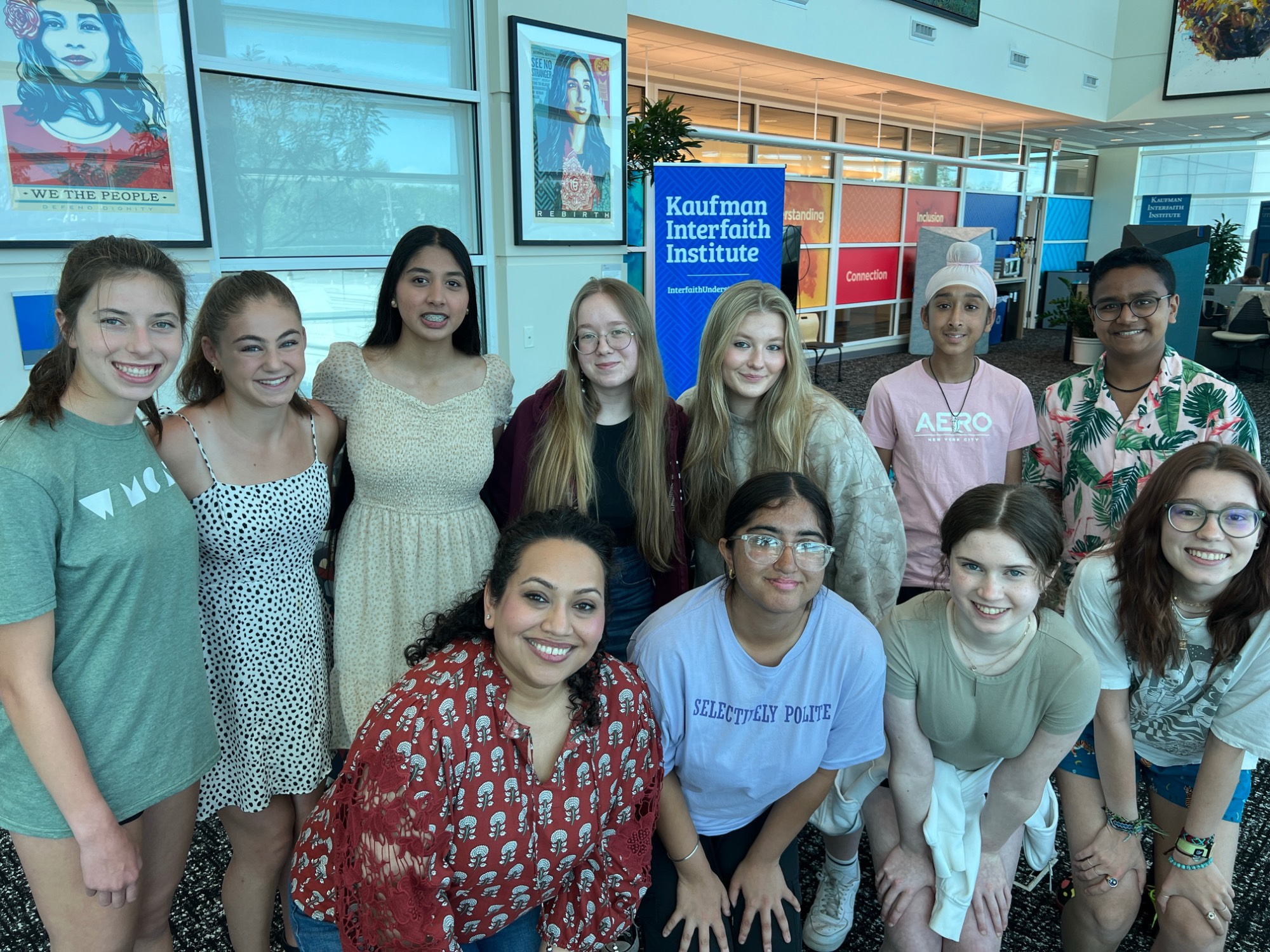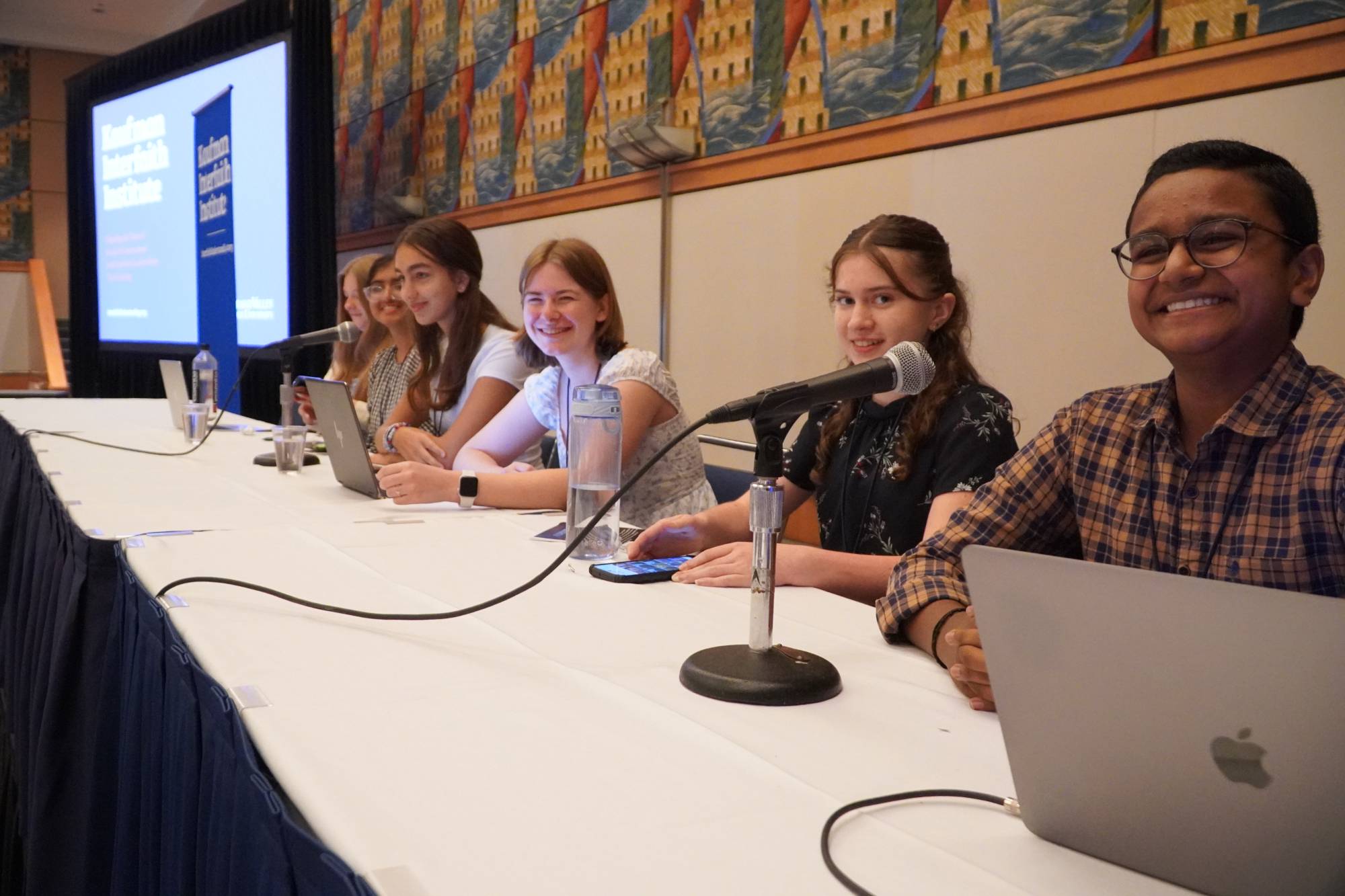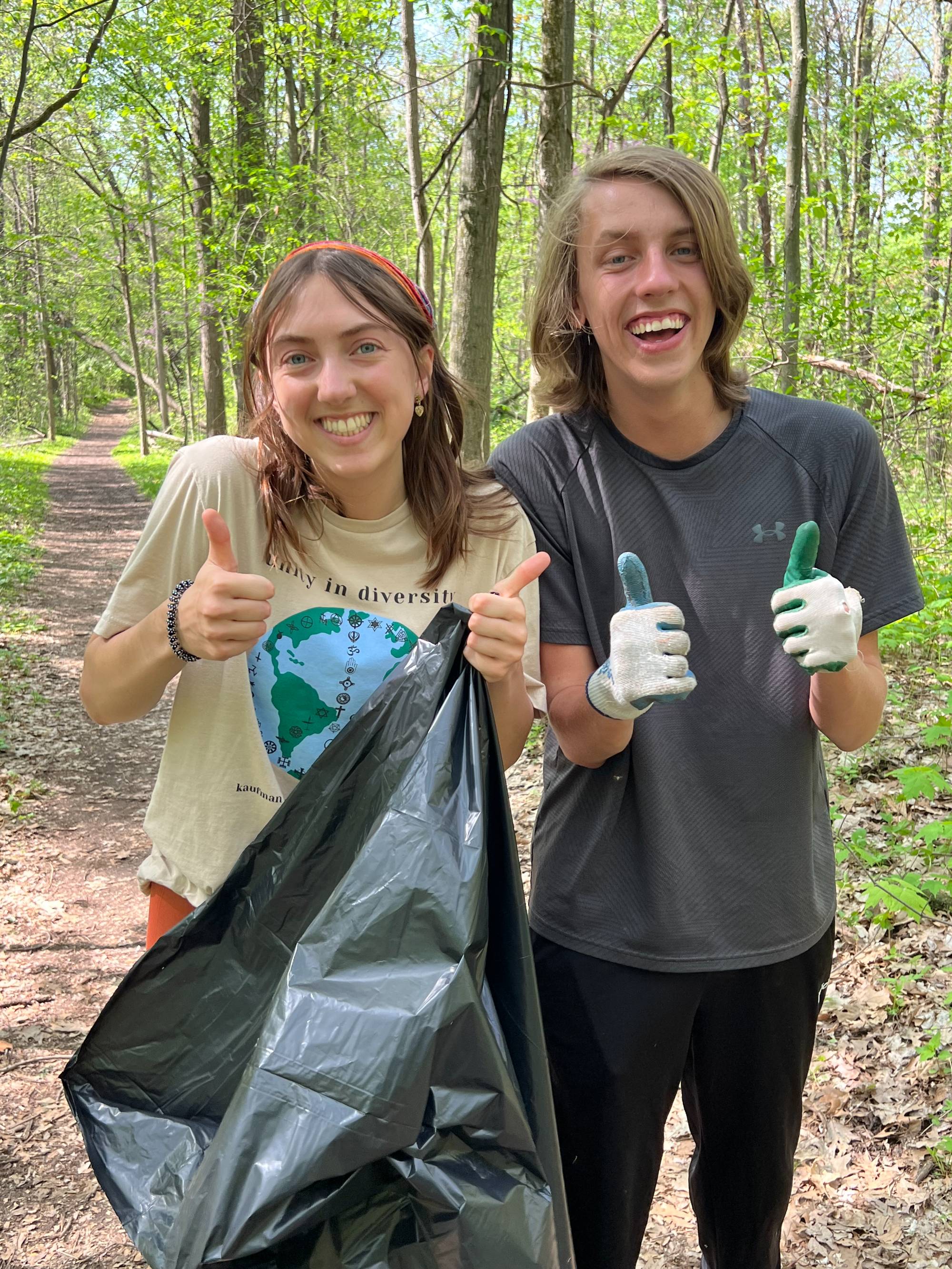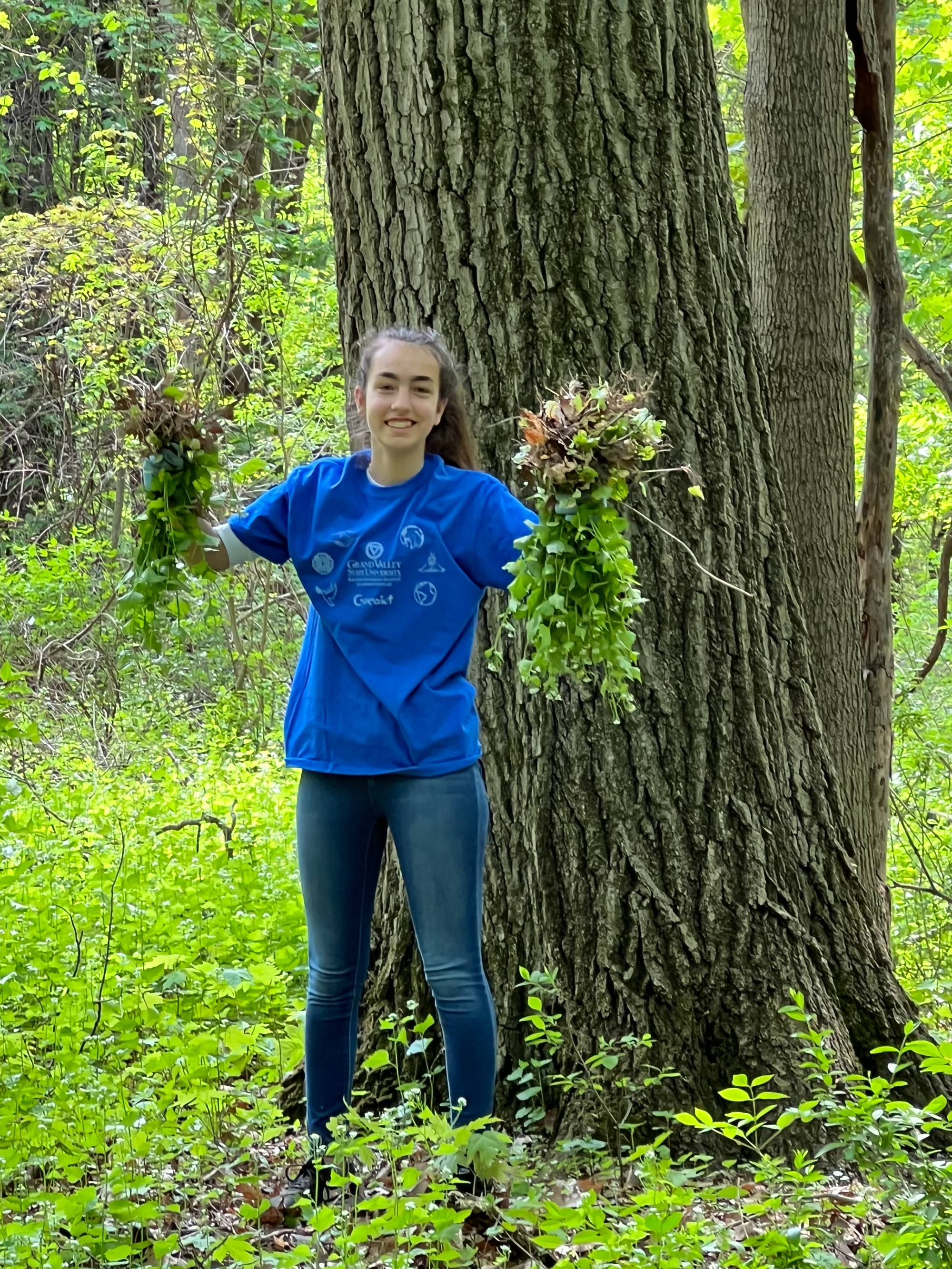Kaufman Interfaith Leadership Scholars: Community Projects

2023-2024
After exploring the issues that impact youth in our community, the Interfaith Leadership Scholars identified unhoused and/or housing insecure youth as the population they hoped to serve with their project for the 2023/2024 school year. After interviewing key service providers in the community the Scholars learned that the best way that they could give back to the community would be through a service project. The interview process revealed the importance of anonymity of the youth for their safety. So while the Scholars wanted to work directly with their peers experiencing housing insecurity through their schools, they respected the need to be good allies and advocates. For their project they chose to help AYA Youth Collective, an organization that centers meeting not just the basic needs of youth facing housing issues but also recognizes the importance of preventing those barriers from happening in the first place. The Scholars toured the facility, learned about the resources that the organization offered, and prepared food for the youth who utilize the AYA services and space. In addition to this project, they raised awareness about unhoused and housing insecure youth via a social media campaign.
Parliament of the World's Religions Presentation - click to play video
2022-2023
The Scholars wanted to address polarization that created exclusionary school environments. They conducted an “Embodied Dialogue Activity” at area schools where students physically stood on lines from strongly agree to strongly disagree when statements about religious inclusion were read. Once standing on their line of choice, they engaged in dialogue about why they chose their answer. After hearing responses students could change lines if they learned or felt something different after hearing other’s experiences. The Scholars also presented this project along with other learnings from the program at the Parliament of the World’s Religions (Chicago, 2023). The title of their presentation was “Dispelling the Taboo of Interfaith Conversations: Youth Interfaith Leaders Share Their Learning.”


2021-2022
The Scholars wanted to address the environment and better understand why people of various worldview traditions felt compelled to care for the earth. After learning about a local park, home to important native species, that was threatened by the invasive Garlic Mustard plant. The Scholars decided to partner with the Friends of Grand Rapids Parks to address this issue. They recruited other student volunteers to help with the clean-up, educated them on invasive species and even built boot cleaning stations to be placed at multiple Grand Rapids parks to prevent the spread of invasive species. They won an award from The Friends of Grand Rapids Parks for having the highest attended and most impactful clean-up event of the year.

Youth Reflections on Hinduism - click to play video
2020-2021
“Interfaith 101 Presentation for Educators” addressed the Eurocentric approach to curriculum in which any religion other than Christianity centered the atrocities faced by those groups rather than a celebration of their accomplishments. The hope of this presentation was to reframe educator’s mindset when approaching history to be more balanced in highlighting and honoring the people that were being “studied.” Additionally, in the vein of humanizing the worldviews studied in high school curriculum, the Scholars also recorded “Youth Reflections on Hinduism and Judaism.” These panel interviews of students who were Hindu or Jewish, along with faith leaders of that tradition provided narratives of their lived experience as a student in our community who practice that tradition.
Youth Reflections on Judaism - click to play video
2019-2020
“Rectifying False Narratives” focused on addressing the vitriol directed towards the Asian American community as the COVID-19 pandemic ramped up using social media platforms. Simultaneously, the Scholars engaged in a “Technology and Basic Needs Drive” to support students who did not have the resources to continue their education on-line. This idea grew out of conversations with our community partners who shared their communities’ struggles to access technology, hygiene products and food in under-resourced areas of our city. These partner’s sites served as drop off locations for donations.

